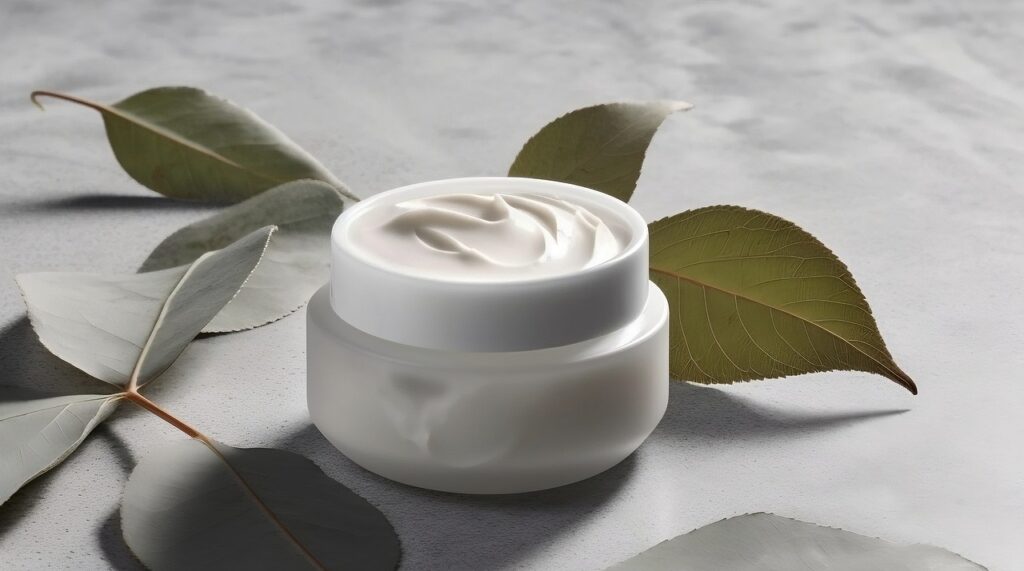Pregnancy is an extraordinary journey filled with joy and anticipation. Alongside this excitement, many expectant mothers navigate changes in their bodies, including their skin. From hormonal fluctuations to increased sensitivity, pregnancy can bring about various skincare concerns. However, with the right knowledge and products, maintaining healthy and radiant skin during this time is achievable. In this comprehensive guide, we’ll explore the ins and outs of pregnancy skincare, focusing on medical active ingredients, answering commonly asked questions, understanding mechanisms of action, exploring therapies, and the vital role compounding pharmacies play in tailoring skincare solutions for expectant mothers.
Understanding Pregnancy Skin Changes:
Pregnancy is a rollercoaster of hormonal changes, and these fluctuations can manifest in various ways on the skin. Some women experience the much-desired “pregnancy glow,” while others may face challenges such as acne, hyperpigmentation, dryness, or sensitivity. Additionally, conditions like melasma, also known as the “mask of pregnancy,” may develop, causing dark patches on the face. Understanding these changes is crucial for tailoring an effective skincare routine.
Commonly Asked Questions:
- Can I Use Retinoids During Pregnancy? Retinoids, including retinol and tretinoin, are potent skincare ingredients known for their anti-aging properties. However, oral retinoids like isotretinoin are contraindicated during pregnancy due to their potential to cause birth defects. While topical retinoids are generally considered safe in small amounts, many healthcare providers advise against their use during pregnancy as a precautionary measure. Instead, opt for gentler alternatives like bakuchiol, a natural retinol alternative with similar benefits but without the associated risks.
- Are Salicylic Acid and Benzoyl Peroxide Safe? Salicylic acid and benzoyl peroxide are common ingredients in acne-fighting skincare products. While salicylic acid is considered safe in low concentrations when used topically, it’s advisable to avoid high concentrations or prolonged use during pregnancy. Benzoyl peroxide is also generally considered safe, but it’s best to consult with a healthcare provider before use, especially in higher concentrations.
- What About Skincare Products with Essential Oils? Essential oils are natural extracts known for their aromatic and therapeutic properties. While some essential oils are safe to use during pregnancy in diluted forms, others may pose risks. Pregnant women should be cautious with essential oils like basil, cedarwood, cinnamon, and rosemary, which may stimulate contractions or affect hormone levels. Always consult with a healthcare provider before using products containing essential oils during pregnancy.
Mechanism of Action:
Understanding how active ingredients work can help expectant mothers make informed decisions about their skincare routine. For example, glycolic acid, a type of alpha hydroxy acid (AHA), exfoliates the skin by dissolving dead skin cells and promoting cell turnover. This can help alleviate issues like acne and hyperpigmentation. Similarly, hyaluronic acid, a hydrating powerhouse, attracts moisture to the skin, providing much-needed hydration, especially as hormonal changes may lead to dryness.
Therapies:
- Hydration and Moisturization: Hydration is key during pregnancy, both internally and externally. Drinking plenty of water helps maintain skin hydration from within, while applying moisturizers containing ingredients like hyaluronic acid helps lock in moisture and soothe dry, itchy skin.
- Sun Protection: Protecting the skin from harmful UV rays is essential, especially during pregnancy when the skin may be more prone to pigmentation changes. Broad-spectrum sunscreen with SPF 30 or higher should be applied daily, even on cloudy days, and reapplied as needed.
- Gentle Cleansing: Opting for gentle cleansers that effectively remove dirt, oil, and makeup without stripping the skin of its natural oils. Look for non-comedogenic formulas that won’t clog pores, and avoid harsh scrubbing or exfoliation, which can irritate sensitive skin.
The Role of Compounding Pharmacies:
Compounding pharmacies play a crucial role in pregnancy skincare by offering personalized solutions tailored to individual needs. These pharmacies have the expertise to create custom formulations free from potentially harmful ingredients, ensuring the safety and efficacy of skincare products for expectant mothers. Whether it’s formulating a bespoke moisturizer free from essential oils or compounding a gentle acne treatment suitable for pregnancy, compounding pharmacies work closely with healthcare providers to meet the unique skincare needs of pregnant women.
Conclusion:
Navigating pregnancy skincare can be both exciting and challenging, but armed with the right knowledge and products, expectant mothers can maintain healthy, glowing skin throughout their journey to motherhood. By understanding which active ingredients are safe to use, implementing gentle skincare practices, and leveraging the expertise of compounding pharmacies when needed, women can confidently embrace their pregnancy glow while addressing any skincare concerns that may arise. Remember, always consult with a healthcare provider before starting any new skincare regimen during pregnancy to ensure the safety of both mom and baby.
To order prescription skincare tailored specifically to your needs, book a skincare consult with us today.
Follow us on Instagram for our latest skincare content!

Lane Khin, the compounding pharmacist of My Skin Pharmacy, brings a wealth of knowledge from the worlds of pharmacy and dermatology to the table. With degrees in Pharmacy and Applied Science from QUT, Lane combines a deep understanding of compounding and skincare with a friendly, accessible approach. Through My Skin Magazine, Lane shares her expertise, offering readers practical advice and insights into personalised skincare solutions. Lane has a real passion for helping others achieve their best skin.


